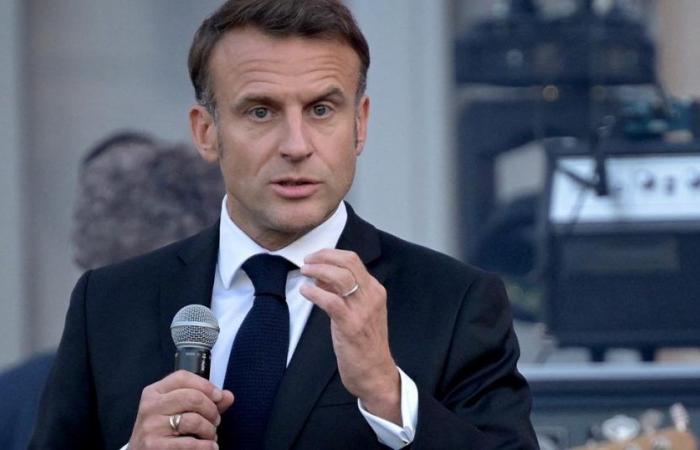
In the absence of an absolute majority in the National Assembly, future governments could face motions of censure. The head of state could constitute a technical government.
The results of the anticipated legislative elections on June 30 and July 7 could lead to cohabitation… or the emergence of an uncertain majority. According to the latest Ifop-Fiducial survey for The Figaro, LCI and Sud Radio, the National Rally would collect 36% of the votes (i.e. between 220 and 260 deputies), the “New Popular Front” is given 29.5%, while the presidential camp displays only 20.5% of the votes. No clear majority emerges at this stage from these projections.
However, Emmanuel Macron will have to take into account the content of the electoral results to appoint a new prime minister, who must traditionally be dubbed by the parliamentary majority. The latter then appoints a government. But the absence of an absolute majority, set at 289 deputies, could cause institutional instability, with the multiplication of motions of censure which would bring down a government coming from one of the three main non-majority political forces.
A consensual prime minister
To avoid this situation, the head of state could turn to another solution: a technical government. Concretely, Emmanuel Macron would be led to appoint a consensual prime minister, who would compose a government of senior civil servants. “This solution allows political parties to commit not to overthrow the government. The message is not to add chaos to chaos. It’s a fallback solution when you can’t take power.”, explains Benjamin Morel, lecturer in public law at the University of Paris II Panthéon-Assas. The large blocks of the hemicycle would thus have “a form of responsibility”. “From a rational point of view, the parties have an interest in adopting this type of behavior and not overthrowing this neutral government”continues Benjamin Morel.
A government of technocrats with a transpartisan profile would be the opposite of what we have observed so far. It would thus be impossible to see very partisan profiles, or even members of the “civil society”as may have been the case in the past with Bernard Laporte at the State Secretariat for Sports in 2007, Nicolas Hulot at the Ministry of Ecology in 2017 or Éric Dupond-Moretti at the Chancellery in 2020.You don’t need someone who embodies something.” insists the constitutionalist.
But a major pitfall could stand in the way of the government: the vote on the annual budget. This component always constitutes “a very strong political signal”, explains Benjamin Morel. In the event of a blockage, the executive could activate article 47 of the Constitution, already used in 2023 by former Prime Minister Élisabeth Borne, which allows all budgetary texts to be adopted by restricting the length of debates in order to “to encourage parliamentarians to meet deadlines”. In the event of a blockage, the executive could automatically adopt the budget by ordinance, but would then be exposed to a motion of censure from the Assembly.
Never seen before in France
There has never been a “technical government” in France. Close examples did exist, but were closer to a national union. “There was a tripartite union between 1944 and 1946 at the start of the Fourth Republic, and another between 1959 and 1962 where all the parties entered the government”. But nothing comparable to a technical government, as was put in place in Italy.
Among our transalpine neighbors, Mario Draghi, the former president of the European Central Bank (ECB), was appointed prime minister in 2021 after long weeks of political and economic crises linked to Covid-19. Both an economist, banker and senior civil servant, his profile was chosen to calm the financial markets, thus allowing his country to regain relative serenity from February 2021 to October 2022.
If the harmony displayed by the major Italian parties lasted more than a year, the time to put in place an economic recovery plan, certain parties took advantage of this coalition to emerge. Fratelli d’Italia, led by current Prime Minister Giorgia Meloni, openly critical of the government, saw its score explode in the 2022 legislative elections: 25% of the votes, while it peaked at 4.35% of the votes in 2018 .
However, it is unlikely that this Italian example will apply to France, believes Benjamin Morel. “Meloni did it because she had the political freedom to do so, he assures. The RN, with the group it will have, will most certainly be obliged to support this technical government. They are no longer marginalized like Meloni was.” This temporary situation could be expected to last “maybe not three years, but probably for a while”.
”
data-script=”https://static.lefigaro.fr/widget-video/short-ttl/video/index.js”
>





